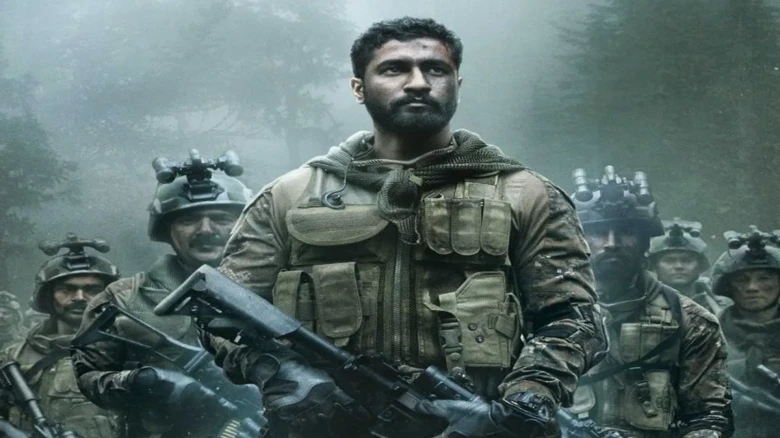North East

After more than 20 years, cinema returned to war-torn Manipur on Tuesday with the screening of...
Digital Desk: After more than 20 years, cinema returned to war-torn Manipur on Tuesday with the screening of a Bollywood film about surgical strikes against Pakistan at a makeshift open-air theatre in Churachandpur.
A large number of people came out to watch Vicky Kaushal Starrer's "Uri: The Surgical Strike" at Rengkai (Lamka).
The screening was organized by the Hmar Students Association (HSA) to protest the ban on Hindi films imposed in September 2000 by 'The Revolutionary People's Front,' a political wing of the outlawed People's Liberation Army, a valley-based Meitei terror group.
"It has been over two decades since a movie was screened in our town. The Meiteis have banned Hindi movies for a long time. Today's move is to defy the anti-national policies of the Meitei groups and to show our love for India," Ginza Vualzong, spokesperson of the Indigenous Tribal Leaders' Forum, said in a brief statement.
The organization describes itself as the voice of the Kuki tribes.
The national anthem was played at the open-air theatre, before the screening of the film, located 63 kilometers from the capital city.
Since May 3, Manipur has seen widespread ethnic confrontations between the majority Meitei and tribal Kuki populations, with over 160 people killed so far.
The HSA stated on Monday that the screening aimed to demonstrate "our defiance and opposition to terror groups that have subjugated the tribals for decades."
"Join us in taking a pledge to continue our fight for freedom and justice," it said.
The HSA said that the last Hindi film that was publicly screened in Manipur was "Kuch Kuch Hota Hai" in 1998.
Officials stated that within a week of the ban in 2000, insurgents had burned 6,000 to 8,000 video and audio cassettes and compact discs in Hindi collected from state outlets.
Though the RPF provided no explanation for the restriction in the northeastern state, cable operators stated the militant group was worried about Bollywood's harmful impact on the state's language and culture.
Leave A Comment